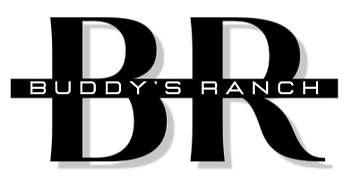Making Memories Without the Hangover
Summer in Northern California brings sunshine, longer days, and countless opportunities to relax and connect—but for those in recovery or choosing sobriety, it can also come with challenges. From BBQs to beach days, alcohol and drugs are often front and center in social gatherings.
The good news? You don’t need substances to have an unforgettable summer. At Buddy’s Ranch, we believe recovery is about living fully, not missing out. Here are our top tips for enjoying a vibrant, sober summer:
Plan Activities That Align With Your Goals
The best defense is a good offense. Choose activities where alcohol and drugs aren’t the main focus:
- Hiking or biking in local parks or redwoods
- Camping trips with sober friends
- Beach days with games, music, and great food
- Exploring farmers’ markets or outdoor art walks
- Paddleboarding, kayaking, or other water sports
Northern California is full of natural beauty—use it to fuel your recovery!
Surround Yourself With Supportive People
Recovery doesn’t mean isolation. Spend time with people who respect your sobriety and encourage your growth. If you’re not sure how to find those people:
- Attend local or virtual recovery meetings
- Connect with Buddy’s Ranch alumni events or sober networks
- Host your own sober gatherings (movie nights, potlucks, bonfires)
Positive peer support is one of the strongest predictors of lasting recovery.
Bring Your Own Drinks (and Confidence)
Going to a gathering where alcohol may be present? Come prepared:
- Bring your favorite non-alcoholic beverages (sparkling water, mocktails, kombucha)
- Keep a drink in hand—it reduces the chances of being offered something else
- Have a simple script ready: “I’m not drinking tonight,” or “I’m good with this, thanks!”
You don’t owe anyone an explanation. Your recovery comes first.
Start New Traditions
Let go of the old idea that fun equals intoxication. Try creating new, sober-friendly summer traditions like:
- Annual recovery road trips
- Outdoor movie marathons
- Sunrise hikes or sunset picnics
- Journaling or photography walks through nature
- Volunteering for a local cause or summer event
You’ll look back on these as milestones—not missed opportunities.
Stay Connected to Your Recovery Tools
Summer fun shouldn’t mean taking a break from the practices that keep you grounded. Stay consistent with:
- Therapy or support group attendance
- Meditation or mindfulness routines
- Daily journaling or gratitude lists
- Calling your sponsor or accountability partner
It’s okay to enjoy summer and stay focused on your healing.
Have an Exit Plan (Just in Case)
Sometimes, situations can get uncomfortable. Always have a way out:
- Drive yourself or go with a sober friend
- Keep your phone charged and a trusted contact on standby
- Practice saying “I think I’m going to head out early tonight—thanks for having me!”
Leaving a triggering environment is not a failure—it’s a victory for your recovery.
Celebrate Your Wins—Big or Small
Made it through a beach party sober? Said no to a drink and didn’t flinch? That’s huge. Acknowledge your progress and reward yourself in healthy ways:
- Treat yourself to a massage, a new book, or a nature getaway
- Share your success with your support group
- Reflect on how much stronger you’ve become
Every sober summer moment is a step toward long-term freedom.
Buddy’s Ranch is Here for You
At Buddy’s Ranch, we know that sobriety doesn’t mean missing out—it means finally showing up for your life. Whether you’re newly sober, in long-term recovery, or seeking support this season, our team is here to walk with you.
From personalized treatment to aftercare and alumni support, we help you stay grounded—season after season.
Need support this summer?
Contact Buddy’s Ranch to learn how we can help you or a loved one thrive in recovery—today and every day.




